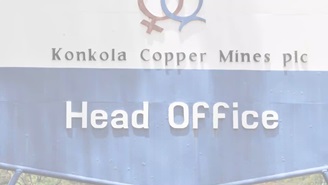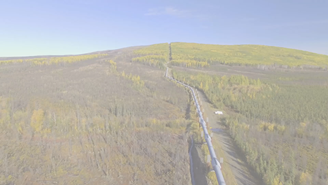What Climate Litigation Means for the Oil & Gas Industry
As the global economy looks towards recovery after being impacted by the pandemic, the oil and gas industry faces a growing wave of shareholder activism and climate litigation due to a heightened focus on an accelerated transition as an indirect impact of the pandemic – painting an increasingly bleak picture for those within the industry.
Personal Products and the New Ethics of Product Naming
Over recent years, personal product (PP) companies have faced an increasing demand for more inclusive product governance – from formulations to labels – and marketing that reflects the diversity of consumers. To grow sustainably within their communities and stay relevant for their target customers, such companies need to create value for society proactively. Some of the major players in this industry have already started paving the way for others.
Coronavirus: Are We Protecting the Most Vulnerable?
As the COVID-19 pandemic swept across the globe at the start of 2020, frontline medical care became a top priority in stopping the virus. Contrary to the improvement in case management at hospitals, the number of cases in long term care homes (LTCH) rose sharply. With the situation evolving by the hour at times, the number of infections and deaths rose exponentially in the US.
Coronavirus: Food Security in a Global Pandemic
As Covid-19 continues to ravage the world, governments have responded with movement restrictions and border closures. While necessary to protect public health, these stricter safety measures are disrupting food supply chains globally, forcing prices upward and increasing the risk of social unrest.
Vehicles and Ventilators: An ESG Lens on Automakers Pivoting to COVID-19 Solutions
Automakers have been hit hard by the COVID-19 pandemic, with widespread plant closures, stalling demand for vehicles and mounting tensions between corporate management teams and government bodies. On the upside, several auto companies have responded to the global health crisis by pivoting parts of their business models to supply the growing demand for ventilators needed for patients suffering from severe respiratory symptoms of COVID-19.
The Quest for Supply Chain Resilience: Where Business Sense and Thriving Rural Communities Meet
In this blog post we highlight the need for living income and living wages to build resilient supply chains and resistance to shocks such as the current COVID-19 pandemic. We explore the important role that investors play and how engagement efforts contribute to progress.
Companies Invest to Extend their Life of Mines
In December 2018, an investor trip was organised to see the operations of Vedanta’s Konkola Copper Mines (KCM) and Glencore’s Mopani Copper Mines (MCM) located in the Copperbelt of Zambia. We’ve been engaging with Vedanta and Glencore for several years as the companies have experienced several ESG issues in their histories. As part of our engagement process, we conduct in-person visits to gain a better understanding of what’s happening on the ground. During this trip we saw how investment can extend the life of mines and continue to support the local communities. In this article I’ll discuss the importance of stakeholder and government relations as these companies make major investments to improve and extend their operations in the country.
Pipeline Power Play: Kinder Morgan puts the Trans Mountain Expansion on Hold
On April 8th, Kinder Morgan (NYSE: KMI) and its Canadian subsidiary announced a suspension of work on its Trans Mountain Expansion pipeline (TME) until May 31 as resistance to the project comes to a head. The project, which would carry to market the glut of oil sands production in Alberta, is one of the few proposed pipeline megaprojects in Canada that remains underway. Despite this setback, the delay may not have a long-term negative impact on shareholder value. In our view, the suspension is not a capitulation but an ultimatum to push the Canadian government and the province of British Columbia (BC) to provide regulatory certainty for the project.
Battle over Western Sahara is moving into court rooms
Polisario Front, recognised by the United Nations as the legitimate representative of the people of Western Sahara (WS), announced that it will initiate new legal proceedings before EU Courts. The announcement came after the EU Council authorized the EU Commission to negotiate with Morocco for a new fisheries protocol. Interestingly, the EU council said that that the fishing agreement negotiations will also cover WS, a former Spanish colony which was annexed by Morocco in 1975.
Managing Portfolio Exposure to Firearms: What investor can do
The February 14 mass shooting at Marjory Stoneman Douglas High School in Parkland, Florida and the subsequent student protests and activism have reignited America’s debate over gun safety. Interestingly, the conversation has shifted to public pension investment in the firearms industry. As passive investors take a closer look at their holdings, some are asking what steps they can take to reduce their exposure firearms manufacturers and retailers.









